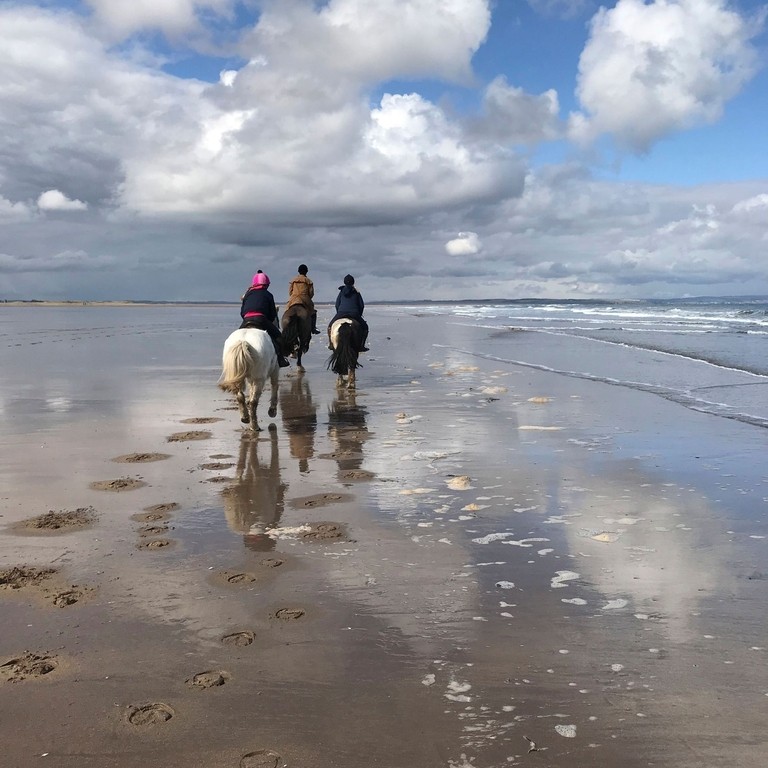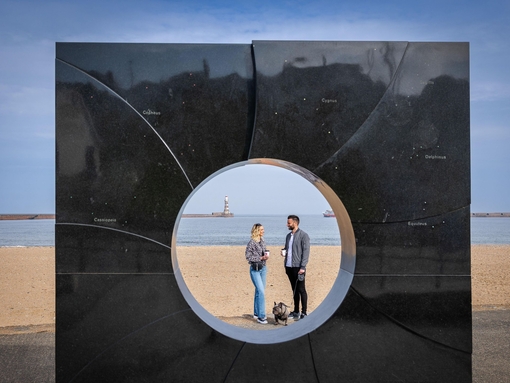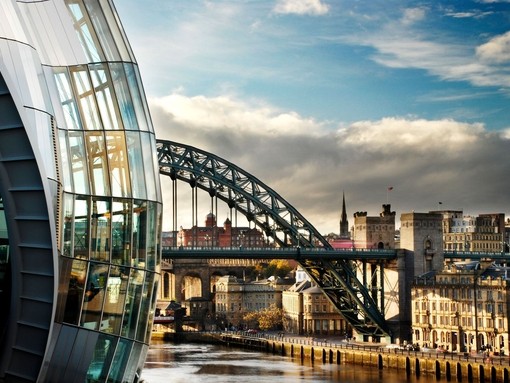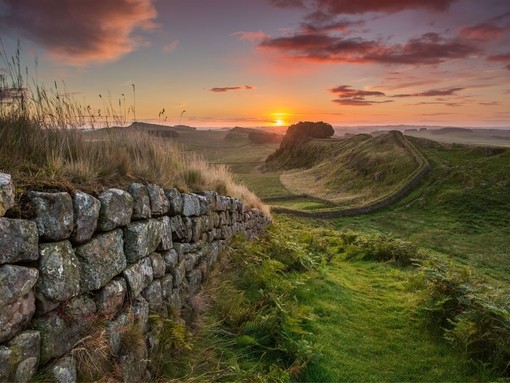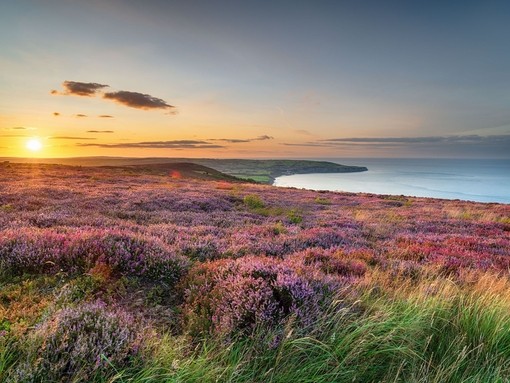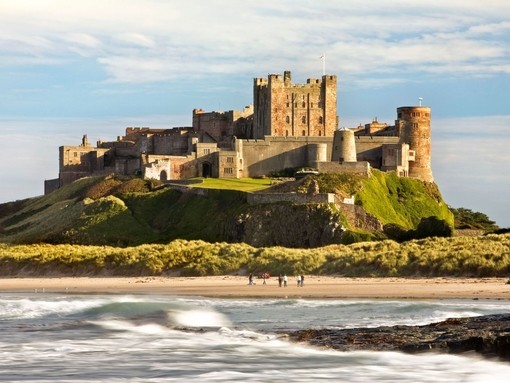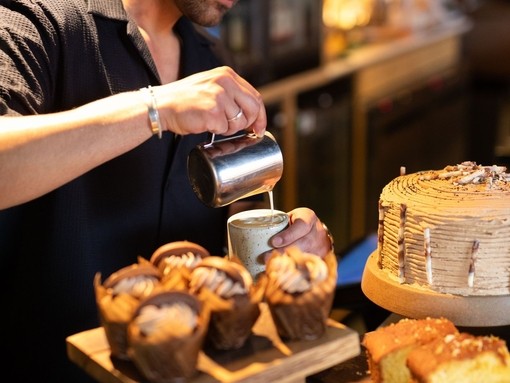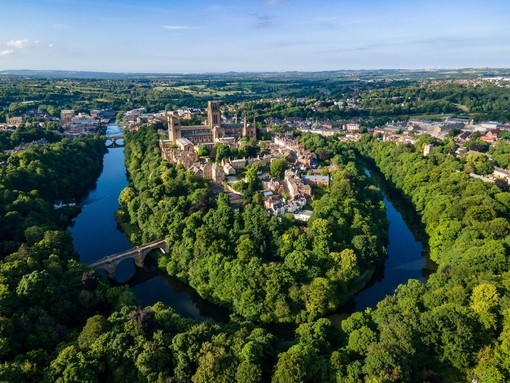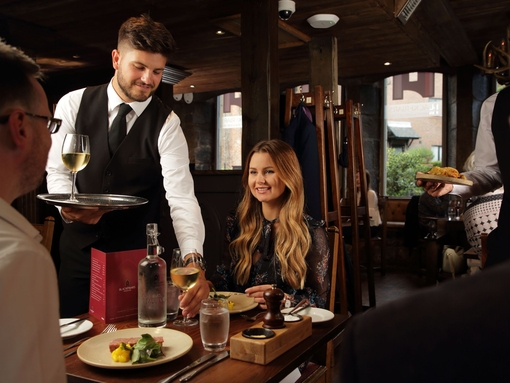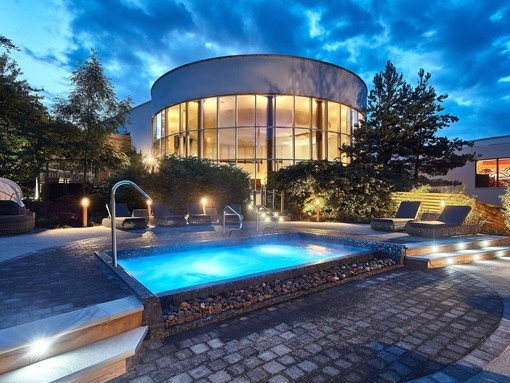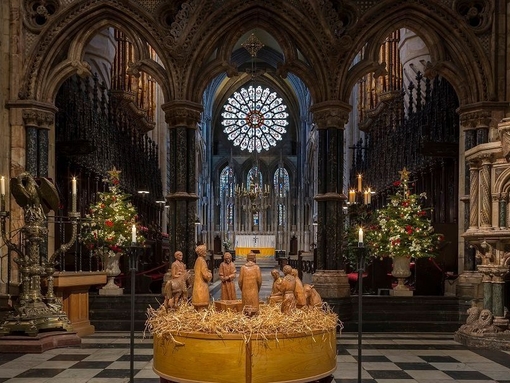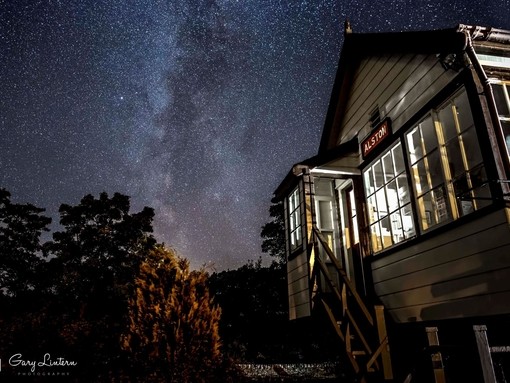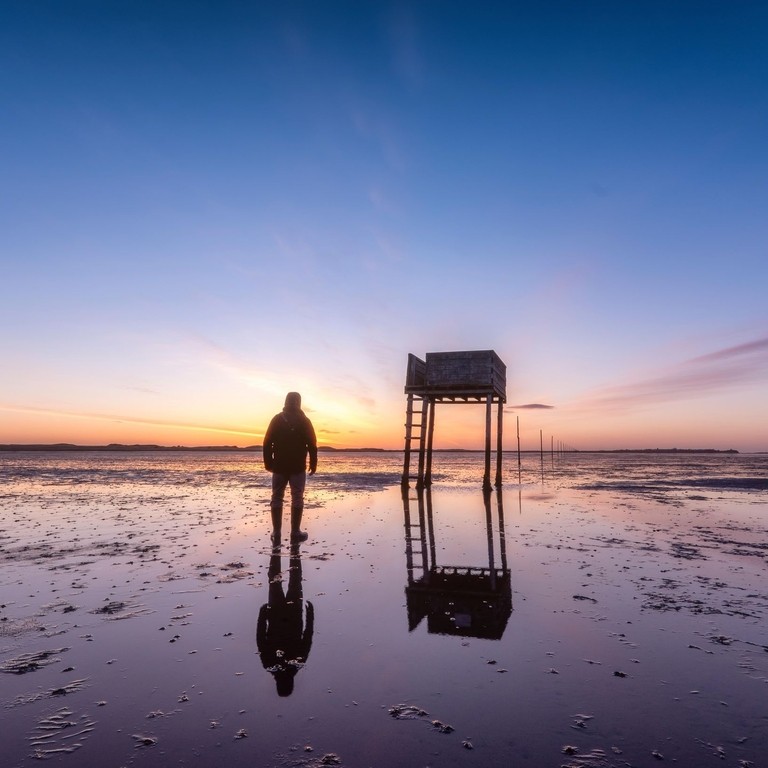
Places to visit in Lindisfarne
The Holy Island of Lindisfarne is one of the most wild and isolated places to go in Northumberland – but there’s plenty of exciting things to do. From walking the Pilgrims’ Way at low tide, to experiencing the solitude of the nature reserve and exploring its ancient castle, these are just a couple of ideas for where to go in Lindisfarne. Shop for treasures like homemade jewellery and the famed Lindisfarne Mead before feasting on freshly caught seafood and bedding down for the night at a cosy inn. And don’t forget about the award-winning wildlife spotting cruises before heading home.
Day 1
Walk the Pilgrim's Way
- Sightseeing
- Suggested time at location: 2 hours
- Free
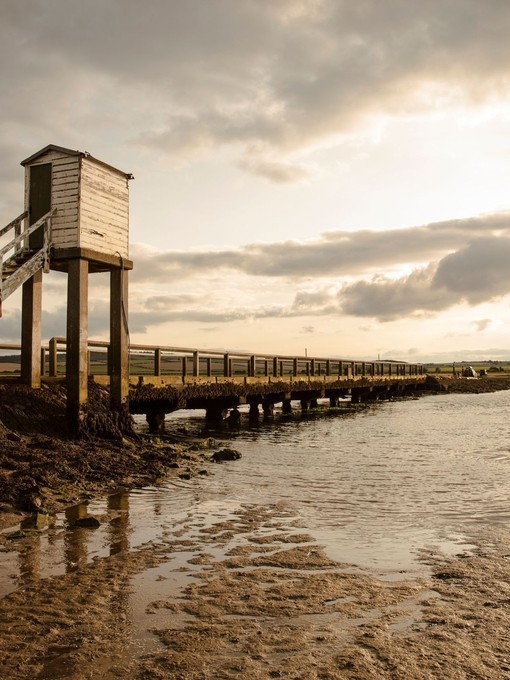
Start with one of the most iconic things to do in Lindisfarne. Reach Lindisfarne like the medieval settlers, by walking The Pilgrims Way. This ancient three-mile path, marked by poles in the sand, was the only route before the causeway road. As you follow in the footsteps of saints and Vikings, consider going barefoot for the full experience. Just be sure to check the safety information before setting out, as the tide’s window can be shorter than expected.
Devour a 1st Class brunch
- Eatery
- Suggested time at location: 1 hour
Refuel after your morning hike with a hearty fry-up at 1st Class Food, featuring award-winning “Bamburgh Banger” sausages. If you arrive a little later, check out the range of gourmet sandwich fillings, such as Holy Island dressed crab – while the desserts include fruit scones and Doddington Dairy ice cream.
Get spiritual at Lindisfarne Priory
- Sightseeing
- Suggested time at location: 2 hours
Follow in the footsteps of the ancient monks who built their monastery here nearly 1,400 years ago. While it’s now mainly ruins, there’s still so much to see at Lindisfarne Priory – one of the top things to do in Lindisfarne. Gaze up at the dramatic ‘Rainbow Arch’, see the Lindisfarne Gospels, learn about the grisly Viking raid and the cult of St Cuthbert in the museum, and take in the panoramic coastal views.
Sip a tipple or two at the distillery
- Eatery
- Suggested time at location: 1 hour
Despite being a small island, Lindisfarne has plenty of places to pick up souvenirs. If gin is your tipple of choice, don’t leave without a visit to 793 Spirits . It sells small batch gin and vodka from the first and only distillery on the island, including the speciality Creed & Tide gin, which is infused with 13 botanicals. For foodies, this is one of the top places to visit in Lindisfarne.
Dine and stay at the Ship Inn
- Accommodation
- Suggested time at location: Overnight
One of two remaining inns on Holy Island, The Ship Inn Pub is a top choice for your evening meal. Full of olde-worlde charm, this 18th-century free house is full of fishing paraphernalia and maritime art, and it even houses the island’s only gin distillery. Pick from pub classics, tasty tapas or even fresh seafood paella, best enjoyed with a home-distilled gin and tonic.
Travel between - Pilgrims Way to 1st Class Food
Travel between - 1st Class Food to Lindisfarne Priory
Travel between - Lindisfarne Priory to 793 Spirits
Travel between - 793 Spirits to Ship Inn Pub
Day 2
Pick up a Pilgrims Coffee
- Eatery
- Suggested time at location: 1 hour
An island institution, Pilgrims Coffee roasts and serves its own coffee and home-made tempting treats: from brownies to the intriguing scone pudding. There’s outdoor seating too, and if your planning skills are top-tier, you can even stay in the adjoining one-bedroom flat – and wake up to the smell of roasting coffee!
Explore Lindisfarne Castle
- Sightseeing
- Suggested time at location: 2 hours
Built in the mid-1500s and renovated in the 20th century by Country Life founder Edward Hudson, Lindisfarne Castle is one of the best places to visit in Lindisfarne. Now owned by the National Trust, this former fort offers a glimpse into its rich history with narrow passageways, a cosy kitchen and austere harbour defences. It’s open April to October. Advance booking is strongly recommended.
Discover a "secret" garden
- Sightseeing
- Suggested time at location: 1 hour
- Free
The charming walled Gertrude Jekyll Garden was created in 1911 by renowned gardening expert Gertrude Jekyll, while her friend Edwin Lutyens transformed Lindisfarne Castle into a holiday retreat. Set on the site of the old garrison's vegetable plot, the garden is a hidden gem near the Castle – discovering it is one of the top things to do in Lindisfarne.
Shop for Holy Island treasures
- Shopping
- Suggested time at location: 1 hour
Located near where the Lindisfarne Gospels were created, the Lindisfarne Scriptorium gallery continues this beautiful artistic tradition, with elegant prints and cards available to buy. Also don’t miss Celtic Crafts for jewellery, Northumbrian and Holy Island inspired pieces in pewter, silver and glass, gifts, books and much more.
Relax with a pub dinner
- Eatery
- Suggested time at location: 2 hours
Looking for top-rated places to eat in Lindisfarne? After a day of exploring, wind down at The Crown & Anchor Pub – the second of Lindisfarne’s last two remaining pubs. The chef-owner specialises in seafood platters and BBQ brisket burgers, all featuring locally sourced ingredients. Enjoy Northumbrian ales, crab sandwiches, or classic fish and chips in the beer garden.
Travel between - Pilgrims Coffee to Lindisfarne Castle
Travel between - Lindisfarne Castle to Jekyll Garden
Travel between - Jekyll Garden to Holy Island shops
Travel between - Holy Island shops to Crown & Anchor pub
Day 3
Breakfast - and some seafood?
- Eatery
- Suggested time at location: 1 hour
Set yourself up for the day with a breakfast roll and fresh coffee at Chare Ends Café – with vegan options available too. The owners are also fishmongers, so why not pre-order some crayfish, kippers or local crab to take home with you?
Walk the North Shore
- Sightseeing
- Suggested time at location: 2-3 hours
- Free
Where to go in Lindisfarne to experience its wild side? Follow the North Shore Walk, which leads to the island’s beautiful beaches and requires around two to three hours. It will take you past the striking Emmanuel Head (aka White Pyramid) sculpture, and down to the Castle.
Discover wild Lindisfarne
- Sightseeing
- Suggested time at location: 1 hour
- Free
A must-visit for nature enthusiasts, Window on Wild Lindisfarne is your chance to observe island wildlife and learn about its rich biodiversity. Inside, educational boards complement a large window overlooking a field with diverse wildlife. The building's design even allows birds to nest in its eaves, enhancing the immersive experience. One of the top places to visit in Lindisfarne.
Try Viking-inspired mead
- Eatery
- Suggested time at location: 1 hour
The best place to buy locally brewed Lindisfarne Mead is St Aidan’s Winery which, despite its name, stocks various flavours of mead – like Elderflower and spiced mead – as well as other Northumbrian brands like Alnwick Rum and Alnwick Brewery beers. Sample its delicious tipples at the shop bar.
Spot seal pups by boat
- Sightseeing
- Suggested time at location: 2 hours
Head back to Seahouses on the mainland (be sure to check the tide times beforehand) and hop on a sunset Farne Islands seal spotting cruise. Seals populate Holy Island year-round but their numbers peak from spring to summer. The Farne Islands host thousands of seals, especially September to October, when adorable white pups are born. Boat trips with Farne Island Boat Tours from Seahouses offer prime viewing during this peak pupping season. One of the best things to do in Lindisfarne.
Top Tip - Coastguard's Cottage
- Accommodation
Accessible accommodation is limited on the island, but we recommend booking Coastguard’s Cottage, which features a ground floor bedroom with ensuite wheelchair-accessible bathroom with roll-in shower.
Top Tip - Nature Reserve Walk
- Sightseeing
Looking for wild things to do in Lindisfarne? Explore its diverse habitats on the three-mile Nature Reserve Walk, passing the harbour, castle, lough, dunes, and returning through Straight Lonen. It takes 90 minutes to three hours.
Travel between - Chare Ends Café to North Shore Walk
Travel between - North Shore Walk to Window on Wild Lindisfarne
Travel between - Window on Wild Lindisfarne to St Aidan's Winery
Travel between - St Aidan's Winery to Farne Island Boat Tours
Travel between - Farne Island Boat Tours to Top Tip - Coastguard's Cottage
Travel between - Top Tip - Coastguard's Cottage to Top Tip - Nature Reserve Walk
Find more things to do in Lindisfarne
